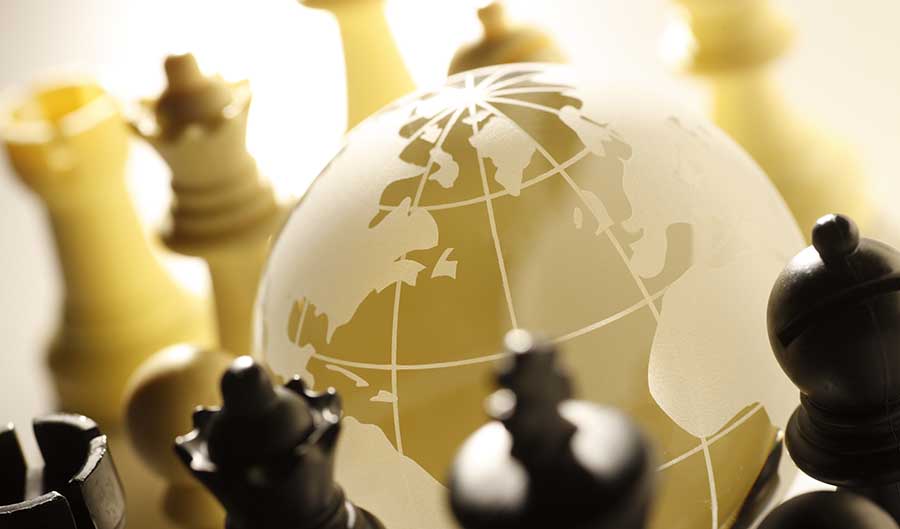
Wang Youming, Senior Research Fellow of BRICS Economic Think Tank, Tsinghua University
Jun 05, 2024
Having endured an abundance of U.S.-led suppression, Russia will undoubtedly move to take advantage of its BRICS presidency to promote four key goals. It is determined to join hands with other BRICS nations to bring about a just, reasonable, multipolar world and break the dominance of the West.

Xiao Bin, Deputy Secretary-general, Center for Shanghai Cooperation Organization Studies, Chinese Association of Social Sciences
May 17, 2024
The international system seems unable to curb hegemonism and Cold War thinking, but China-Russia strategic coordination can mark a new path. As the two nations achieve win-win cooperation through the “five always” standard, the fundamental interests of the Chinese people will be served in the process.

Fan Gaoyue, Guest Professor at Sichuan University, Former Chief Specialist at PLA Academy of Military Science
Feb 22, 2024
NATO appears to be preparing to send troops to Ukraine, as the alliance believes it must defeat Russia at all costs. If it does intervene, it will create two major risks that could pull the world into an abyss: A conventional war could become a nuclear war, and a local war could become a world war.
Xiao Bin, Deputy Secretary-general, Center for Shanghai Cooperation Organization Studies, Chinese Association of Social Sciences
Oct 11, 2023
The war in Ukraine has provided the Biden administration with a chance to realize America’s geopolitical ambitions. Courting the nations of Central Asia could become a major Western success story. But it’s just as likely to end in catastrophe.
Joseph S. Nye, Professor, Harvard University
May 03, 2023
We live in a world where geopolitical stability relies largely on deterrence. But how can we prove that deterrence works?
Xiao Bin, Deputy Secretary-general, Center for Shanghai Cooperation Organization Studies, Chinese Association of Social Sciences
Mar 01, 2023
The Russia-Ukraine conflict is forcing people to rethink the role of today’s international system in maintaining world peace. The system is currently out of balance, with one superpower and several other significant powers jostling for prominence.

Zhao Minghao, Professor, Institute of International Studies at Fudan University, and China Forum Expert
Feb 27, 2023
Beijing’s influence on the Ukraine crisis is limited. Neither Washington nor NATO should nurse unrealistic expectations. Relations between China and Russia should not be viewed through the lens of Ukraine. It’s in everyone’s interest to stop the crisis from escalating into a global confrontation.

Fan Gaoyue, Guest Professor at Sichuan University, Former Chief Specialist at PLA Academy of Military Science
Feb 17, 2023
The United States is the biggest winner in the Russia-Ukraine conflict. It’s using it to beef up and modernize its own military and economy. Everyone else has lost. No end is in sight, but one thing is certain: The longer the conflict lasts, the more the U.S. benefits.
Xiao Bin, Deputy Secretary-general, Center for Shanghai Cooperation Organization Studies, Chinese Association of Social Sciences
Feb 01, 2023
Russia’s irrational struggle has accelerated a process in which nearby countries are induced to turn against it. Making war is a costly way of fighting. Our country needs to learn how to win without fighting through the use of soft methods.

Wu Xinbo, Director of the Center for American Studies, Fudan University
Jan 12, 2023
The United States lacks the strength and influence to simultaneously contain both China and Russia. As with the Iraq and Afghanistan wars, its policies will place it in strategic overdraft and lead to more strategic errors.
Back to Top

- China-US Focus builds trust and understanding between the U.S. and China through open dialogue among thought leaders.
- Our Offerings
- Topics
- Videos
- Podcasts
- Columnists
- Research Reports
- Focus Digest
- Stay Connected
-
Thanks for signing up!
- Get the latest stories from China-US Focus weekly.